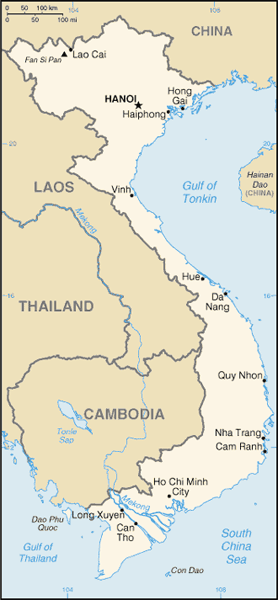越南社会主义共和国
 背景
背景
目标
过去的项目
背景
Since the 1950s, the Ministry of Health (MOH) in the 越南社会主义共和国 has developed a network of 10,000 Commune Health Center (CHC) facilities across the country. CHC health care teams consist of generalist physicians, assistant physicians, midwives, and nurses. By 2004, 50% of 越南’s CHCs had generalist physician coverage.
In 1995, the MOH partnered with international experts to evaluate 越南’s primary health care delivery and education systems. Faculty members from the Collaborative embarked upon a four-year needs assessment. 越南医生毕业于6年制医学院。 他们很少接受任何医学院毕业后的培训,并且经常在没有接受门诊医学培训的情况下进入实践。 在他们的整个职业生涯中,这些医生没有机会接受有组织的继续医学教育。 These findings and the resulting recommendations convinced the MOH to choose a new system of health care delivery with an emphasis on Family Medicine.
In March 2000, the Minister of Health, declared the creation of a Family Medicine specialty in 越南. In 2001, the Collaborative began its first official project, the 越南家庭医学项目, which focused on the development of a curriculum framework and the establishment of a national coordinating body to supervise the ongoing work, and training of family doctors. The project started in Hanoi and expanded to Ho Chi Minh City, resulting in partnerships between the Ministry of Health, the Hanoi Medical College, Ho Chi Minh City School of Medicine and Pharmacology, Thai Nguyen Medical School and the World Organization of Family Doctors (WONCA). 自2001年以来,越南有六所医学院将家庭医学设立为一门学科,其中包括顺化医学院和芹苴医科大学。 The Collaborative continues to expand its efforts in 越南, embarking on hospital nutrition and faculty development projects.
目标
我们在越南项目的总体目标是协助制定、实施和评估国家家庭医学项目的课程、新濠影汇赌场和培训地点。 Our collaborative projects aim to create sustainable training programs that will develop the Family Medicine Model as the cornerstone for the delivery of primary health care to the people of 越南.
过去的项目
 越南中部的初级保健医学教育 越南中部的初级保健医学教育 |
 国家新濠影汇赌场发展中心 国家新濠影汇赌场发展中心 |
 AFINS医院营养项目 AFINS医院营养项目 |
 越南 Family Medicine Development Project 越南 Family Medicine Development Project |
 越南教育基金会 越南教育基金会 |
 海防临床教学工作坊 海防临床教学工作坊 |
 家庭医学专业培训评价 家庭医学专业培训评价 |
 湄公河三角洲的家庭医学发展 湄公河三角洲的家庭医学发展 |
 家庭医学培训中心医疗设备 家庭医学培训中心医疗设备 |

